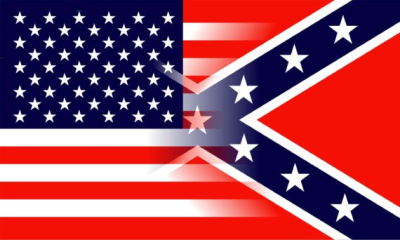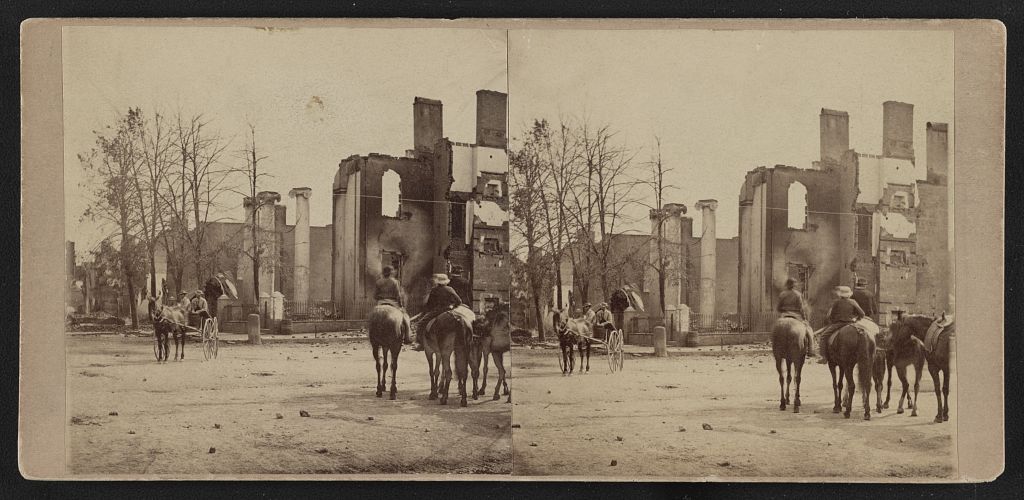About Publications Library Archives
heritagepost.org

Preserving Revolutionary & Civil War History

Preserving Revolutionary & Civil War History

In July 1864 in the Shenandoah Valley, Confederate General Jubal Early’s troops had recently defeated Union General David Hunter’s forces and then managed to approach the forts defending Washington D.C. before falling back in the face of Union reinforcements.
Earlier that summer, General Hunter had permitted his troops to loot and burn private property in the Shenandoah. To retaliate, General Early decided that “it was time to open the eyes of the people of the North to this enormity, by example in the way of retaliation.” General Early decided that the object of his retribution would be the town of Chambersburg Pennsylvania.
Before he acted, he demanded that the town’s residents hand over $100,000 in gold or $500,000 in currency to compensate people in the Shenandoah Valley for the loss of their homes.
The Confederate raid was led by General John McCausland, and consisted of his own brigade as well as that of Bradley Johnson; perhaps 2,800 men and 4 cannons in all.
Around 5:30 a.m., the Confederate artillery fired about six rounds over the city. Leading his cavalry into the town square, McCausland and his chief officers had breakfast at the Franklin House. McCausland ordered the arrest of the town’s leading citizens, including attorney J. W. Douglas. Douglas was provided with a copy of General Early’s order and was sent to inform the townspeople that Confederate troops would burn the town if they did not provide the required ransom.
Other detainees had told McCausland that bank funds had already been removed and sent north for safekeeping. When Douglas informed McCausland that he could find no money, the general called the townspeople into the square and then ordered his troops to burn Chambersburg.
Confederate soldiers rampaged throughout the town, broke into houses, evicted their occupants, smashed furniture, heaped the pieces into piles and then set them on fire. By eight a.m. the city was in flames. Renegade soldiers robbed citizens, looted stores, and drank whatever liquor they could find while the fire burned. Some soldiers demanded ransom money to spare a home and then torched it anyway after the ransom was paid.
Not all Confederate soldiers participated in the sacking of Chambersburg. An officer who was a Mason himself prevented The Masonic Temple from being torched by posting guards to prevent its burning. One colonel of the 21st Virginia Cavalry refused to obey the burning order, for which he was arrested and his entire unit sent out of town.

Other Confederates tried to help frantic citizens retrieve household goods before their homes were burned. In the end, perhaps 550 buildings went up in flames. In spite of the widespread arson and looting, Confederate forces killed only one civilian, an elderly African American. In retaliation for the attack on their town, angry citizens killed at least five Confederates by the time the raiders had withdrawn.
The Confederate act of vengeance at Chambersburg had no impact on the military outcome of the war, nor had Early expected it to. However, when graphic photographs of the ruined city circulated widely across the North it led to calls for retaliation against the South.
In a series of battles in September and October, General Philip Sheridan’s Union army badly defeated Early’s outnumbered forces in the Valley and then proceeded to effectively destroy the agricultural life of the Valley’s residents by extensive burning of barns and crops.
I mention this attack on civilians since this action, unsanctioned by the Confederate government as well as being a violation of Robert E. Lee’s express prohibition of such actions, is the most egregious action taken by Confederate troops against a civilian population during the war.
By way of comparison, let us examine the results of the officially sanctioned policy of the Lincoln Administration as well as the actions undertaken by top Union military commanders, as part of the Leiber Code’s doctrine of “military necessity.”